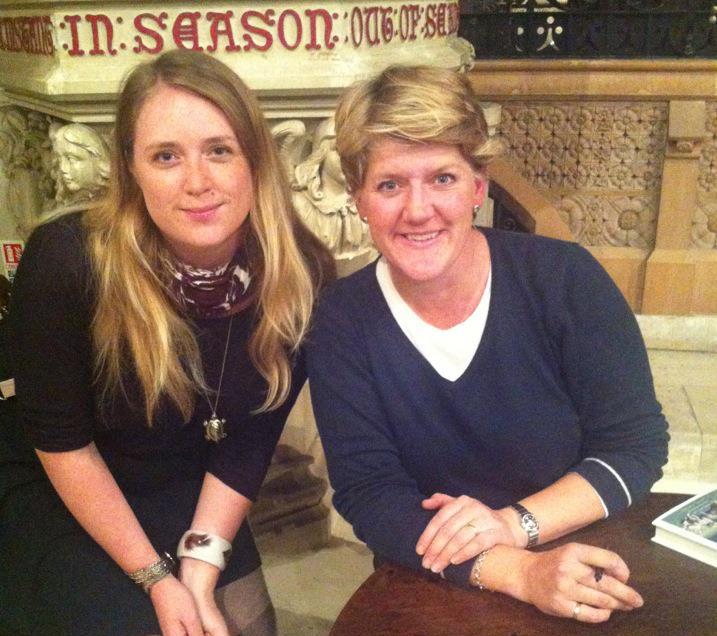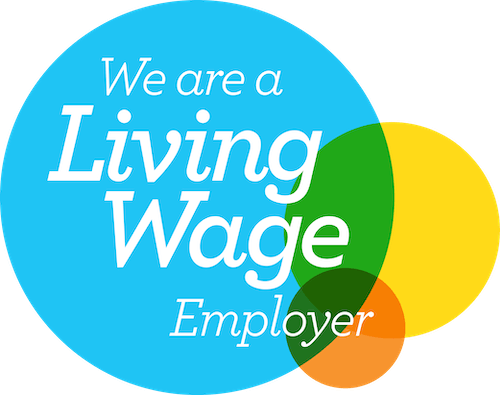We’re diving into a monster topic: sales tactics; and specifically, some scarily common messaging that is often used for villainous purposes as it can leave a reader totally bewitched.
And now I need to stop because I’ve whilst I’m writing this article a few days before Halloween, it’s not actually seasonal. Plus, I’ve run out of puns.
I’m following up my recent blog post, Why our web design company’s new type of client disheartens the heck out of me, which started to explore the world of manipulative sales tactics and messaging.
In short, there are some sales tactics that work extraordinarily well. They’ve risen in popularity over decades and benefitted from some pretty intense fine-tuning, and are often embraced by spurious and suspicious schemes; things like get rich quick schemes, pyramid schemes and multi-level marketing/network selling.
They’re also increasing in popularity by companies that target small business owners; copywriters, virtual assistants, photographers, designers, social media managers, and my own industry, website designers.
So here’s a list of 16 frighteningly popular sales tactics that work ghoulishly well and might just be some bright, blood-red flags.
1. Leveraging loneliness and isolation
It’s a cliché but that doesn’t make it any less true: running a small business is really fluffin’ hard. Sure, the ups are just magical – but the downs are the downiest, and they can be relentless.
It also takes time to seek out and nurture your own support system; it took me about 2-3 years to find a group of small business owners who could empathise and sympathise with every awkward client or crappy email or flooded office space.
Which is why running a small business is almost always isolating, which leads to loneliness, which leads to vulnerability. Vulnerability that can be exploited, with sales messaging like:
- With a team of people just like you…
- Tired of going it alone?
- Running a business by yourself is…
- Find the community you’ve been looking for
- Miss the office banter and water cooler moments?
2. Psychic-style cold reading
We’ve all accidentally switched on the tellybox to a random channel and then accidentally binge-watched 2.5 hours of a psychic or medium connecting enthusiastic and bereft audience members chat with their aunts, or see their future, or find out if their problematic ex is still in love with them.
One tactic psychics and mediums use for their cold-reading is making super vague and general statements that could apply to pretty much anyone, like:
- Does the letter D mean anything to you?
- I can see someone who has a funny story that involves an animal
- I am seeing Summer, the sun is out, there are birds…
It makes someone feel like the psychic is talking specifically to them, when really they’re just making claims that apply to a huge chunk of the audience. This pish works really well when marketing to small business owners too, which is why you hear:
- We help cure your overwhelm
- Struggling with the facts and figures?
- For people who take business growth seriously
- If you’re not sure what you should be doing…
3. Prosperity promises
10. k. months. Need I say more? Well, yeah I do need to say more so this blog is actually helpful. I chat a lot about humans and not people when I talk about things like sales tactics or website UX – this is to try and emphasise the biological, psychological, fleshy predictable beings and not the complex, individual personalities inside us.
I feel like that was accidentally a bit gross.
Anyway. Humans crave security. They want warm, dry homes, they want to be safe from predators, and they want to provide for themselves and their families. You know what you need in order to fulfil those human needs in the 21st century?
Money. Lovely, lovely money.
Money and prosperity promises work because we literally all want enough money to fulfil and exceed our own biological needs. That’s why these lines work so well:
- 10k months
- 5x your income
- Earn whilst you sleep
- Enjoy a full-time income in just 2 hours per day
4. Exerting toxic comparison
This entry came with assistance from friend of Studio Cotton and our client, Bonnie. I asked this utterly fabulous copywriter to read through my lists of icky sales tactics in case she could think of any I’d missed, and here we are.
Do you know those majorly icky ‘get that beach body’ ads that were plastered over the London Underground? They worked because they fostered the feeling of inadequacy that comes from toxic comparison (and gross societal norms, but that’s less applicable to this blog article).
It’s the whole “Look at this thing, it’s the best way to be”, and also “You’re not this thing, therefore you’re not as good”, and also “You won’t believe this but we just happen to sell a product that will turn you into that thing we told you that you want to be”. You can spot this is marketing for small business owners with words and sentiments like:
- Become the go-to expert in your field
- Out-book your competitors
- If you don’t do this thing, someone else will
5. PASing all over the place
Bonnie also taught me about the very popular and very powerful copywriting technique, PAS: Pain/Problem, Agitate, Solve/Solution. Here’s an example from Bonnie herself:
Are you always behind your friend when you’re skating? [Pain]
Could they be talking about you? (sad face) [Agitate]
Buy our super speedy skates! [“Solution”]
I also love how Bonnie tailored her example to my penchant for rollerskating, and fear of people judging how slow I am at said rollerskating.
6. Emotional outcomes
You know how people can’t control their feelings? Like I’m joyous when I’m eating a Pippins doughnut, I’m sad when I’m slow at skating, I’m always happy-crying during the scene in The West Wing where CJ announces to the press room that she is the new Chief of Staff*, and I’m an embarrassing, emotional mess of a human whenever I’m in the presence of someone with even a modicum of fame.

So if humans can’t control their emotions, why the heck do brands and creators promise emotional outcomes to people who buy their products?! Well, because they work really, really well.
- Feel that confidence you’ve always wanted
- You’ll banish the dread and fear
- Never feel burnt out again
- Erase the self-doubt
*I’d usually drop in a link to a YouTube clip with this scene but I couldn’t find one, so I guess you’ll just have to watch 7 seasons of The West Wing to get it.
7. Understating upskilling
Hey babes, you already know everything you need to know. Or at least, that’s what some of these sellers want you to think. Phrases like:
- Use the skills you already have
- You’re already an expert
- Apply what you already know
- Here are the skills you already have, here are the skills you need – well look at that, they’re the same!
If you’re finding out how to grow your small business, take advantage of a new technique or process, or sell a new product, you need to learn. Also, if you already have everything you need – what are these businesses even selling? The answer: it doesn’t matter. As long as these sales tactics get you to spend money, they’ve worked.
8. Emphasising easiness
Hey babes, you already know nearly everything you need to know, and those things you don’t know? Well they’re like the easiest things ever to learn.
Nobody wants to hear that after they buy a product, they’ll also have to spends hours broadening their understanding, weeks putting it into practice, or years refining their skills and experience to reach that expert level.
What they do want to hear is how dang easy and how dang quick they’ll see results, which again, is why, this tactic works so dang well:
- The only [x] database you’ll need
- A workbook that’ll take you from A – Z in no time
- Short self-learning modules that can fit around your schedule
- Learn in just a few weeks
- See results immediately
9. Product specification omission
Have you ever heard that “nobody cares about the details”? What they really mean is “Selling stuff to people who don’t care about the details is way easier and will generate you plenty of revenue”. So let’s take a look at a toaster.
I have bread. I want toast.
If I visited a well-sexy sales page that helped me relate to how it feels to only have bread when you want toast and how satisfied I’ll feel when I have toast – that might be enough to get me to buy that toaster.
But I’m the kinda lady who has questions; things like:
- Does is toast 2 slices or 4?
- Will it fit on the counter in my utility room?
- Does it complement my kettle?
- Does it have that pop-up rack thing for crumpets?
Omitting the specification not only reduces queries from detail-orientated leads who might clog up the sales funnel, but it also makes it really tricky to compare two products from different providers. How can I tell which toaster is better, when all I know if that both turn bread into toast?
It doesn’t have to be the specification of the product or programme either. If you’re purchasing a service, it can often be the specification of the person providing it; their experience, their qualifications, and what actually gives them the skills to deliver the thing you want to purchase.
PS. Bonus gross thing: it’s not uncommon for sketchy sellers to start selling their product, course, or service without really knowing what the specification will be. Kinda like a pre-order pre-sale, except neither party knows what’s involved even though money is being exchanged.

SEO-ified product descriptions
We create utterly thorough and seductive descriptions that give your customers all the information they need and Google everything it loves.
10. Due diligence dissuasion
Ah due diligence, how do I love thee? Let me count the ways…
Due diligence is the act of, well, covering your small business’ butt. It’s a process of research, questioning and comparison that ensures you are aware of the risks and potential rewards so that you can make an informed decision about what’s best for your small business.
You can see why a lot of pushy sellers hate it. Generally more time spent performing due diligence means fewer people making a purchase, particularly the ones who were on the fence. Some of the sales tactics we’ve already covered dissuade due diligence, but here’s some more:
- Selling high-price products/services online
- No enquiry calls
- Calls that don’t feel like a conversation, more like a pitch
- Scarcity
- Urgency
11. Scarcity
The psychological term for FOMO. Scarcity is the opposite of abundance – where there’s not enough to go around. Humans hate scarcity, and it tends to make us act quickly, or hoard toilet rolls, or book a service because:
- There’s just 5 slots left
- It’s for a select cohort of 10 ambitious entrepreneurs
- This course only runs twice a year
What’s wild about scarcity is how it works so well that many sellers introduce artificial scarcity, which is basically limiting things because the limit itself is what motivates the buyer to commit.
12. Urgency
You have 3 minutes left to read this blog before I delete it. No, not really. I’ve been writing it for a couple of hours now, and if I don’t finish it soon Halloween will have passed and those puns you read about 5 minutes ago will go to waste.
Like scarcity, urgency pops an expiry date that is often artificial onto the availability or price of product, so watch out for:
- Special introductory offer
- Black Friday special
- Book before the course closes
- Payment plan only available until…
13. Generous payment plans
Speaking of payment plans. One thing that grinds my gears (or, I suppose, one more thing…) is not payment plans themselves – giving the ability to let the buyer spread payments over a longer period of time – but the notion that offering a payment plan is truly altruistic.
Payment plans increase sales conversions for the simple reason that a $97 deposit or initial payment is a lot cheaper than a $497 product, service or course. Sure, it’s nice that the customer might be able to access a product sooner than they can afford – but it’s way nicer for the seller who gets some of your money instead of none of your money.
14. Money-back guarantees
Way fewer people request refunds than want refunds. Right now I’ve got a lovely dress that fit proper weird around the bust sat in the returns bag next to my bed. The returns deadline has passed, and now I’m stuck with a dress that gives me wild monoboob even when I’m wearing my good bra.
Money-back guarantees sound like a really lovely offering and a show that the product must be good, otherwise why would the seller offer this?!
You know another word for a money-back guarantee: a bloody refund. Something that you are often legally entitled too. It’s not a perk, it’s a sales tactic.
15. Putting a face on it (or a personal brand)
Humans trust humans. We’re biologically programmed to believe that people within our communities are there to help us, just like we would help them – even if they’ve done absolutely nothing to earn that trust.
Trusting strangers so much that they can exploit you has become a prolific problem in the age of social media. These windows into each others lives make it feel like we know someone. We know how they dress, what they had for breakfast, what their favourite scene in The West Wing is, and it makes us like them and trust them.
I’ll be honest, if you’d read this far and this is the first of my articles you’ve ever seen, you trust me too much. Stop it, you predictable human.
Like all the other sales tactics in this article, building a personal brand isn’t a red flag; but it does mean that you might be willing to skip over that due diligence because trust is filling in the gaps on a sales page. Here’s some of the red-flaggy content to watch out for:
- I was just like you…
- I sold my business for [insert prosperous amount], now let me teach you how
- If you love Sex & The City member with a cheeky Starbs, we’ll love working together
16. Too good testimonials
So many humans trust humans, even humans they haven’t even met yet. This is why testimonials and reviews are so dang good for selling, I use them all over the Studio Cotton website, and every website we build for our service business clients too.
Testimonials are there to back-up what a seller is saying about their product’s features and benefits, but often testimonials are so dang powerful that they can forgo those features and benefits too.
Ok. We made it. 16 frighteningly popular sales tactics that work ghoulishly well (and might just be some bright, blood-red flags) and about 2,300 words later. Thank you for sticking with me.
I love to summarise my blogs with a snappy conclusion which is Aime-code for, “you could probably skip them and not miss out”.
Today though, I wanted to emphasise that just because someone uses 1, 2, 3 or 10 of these sales tactics DOES NOT mean that they are a grifter. A shyster. A scam artist.
These sales tactics are just incredibly effective, and could be convincing you – you lovely bloomin’ small business owner – to purchase a course or service or website or software which isn’t a good investment.
Next time you’re reading through a sales page, or following someone on social media, keep these in mind so you know when to strip away the sales gubbins, and really understand if this is a solution that your small business needs.
























